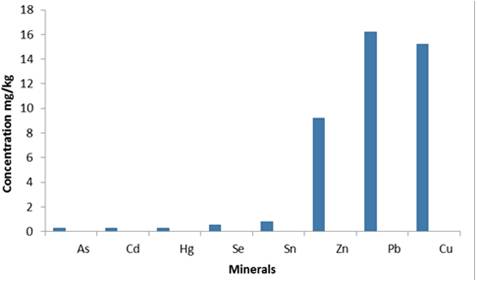Abstract
The industrial processing of marine product creates large amount of bio wastes. These bio wastes mainly consist of shrimp shells and head which may cause environmental pollution. Marine wastes can be recycled in an appropriate way and the lead components can be extract and it is found to have nutritional value and other pharmacological applications. Shrimp muscle alone does not act as a good source of protein but shrimp shell also has enormous amount of protein. The shrimp shell is found to contain high amount of protein and other important minerals which are essential to human body. Recently much attention has been paid to natural nutrients due to their non-toxicity. The present investigation was planned to quantify the protein and minerals like zinc, copper and selenium from shrimp shell waste. The shrimp shell is found to contain 33g/100g of protein and also with minerals such as Lead, copper, zinc, tin, selenium. Hence the present investigation is said to have a specific influence on health as a low- cost natural substitute to overpriced drugs. Thus the effective utilization of shrimp shell waste enhances biomedical research field, for the development of natural drug for many chronic disease without side effects and at the same time can reduce environment pollution.
Full text article
Generated from XML file
Authors
Jayalakshmi M, Vanitha V, Amudha P, & Pushpabharathi N. (2023). Assessment of Minerals from Shell Waste of Penaeus indicus. International Journal of Research in Pharmaceutical Sciences, 8(2), 196–199. Retrieved from https://ijrps.com/home/article/view/4559
Copyright (c) 2017 International Journal of Research in Pharmaceutical Sciences

This work is licensed under a Creative Commons Attribution-NonCommercial-NoDerivatives 4.0 International License.

